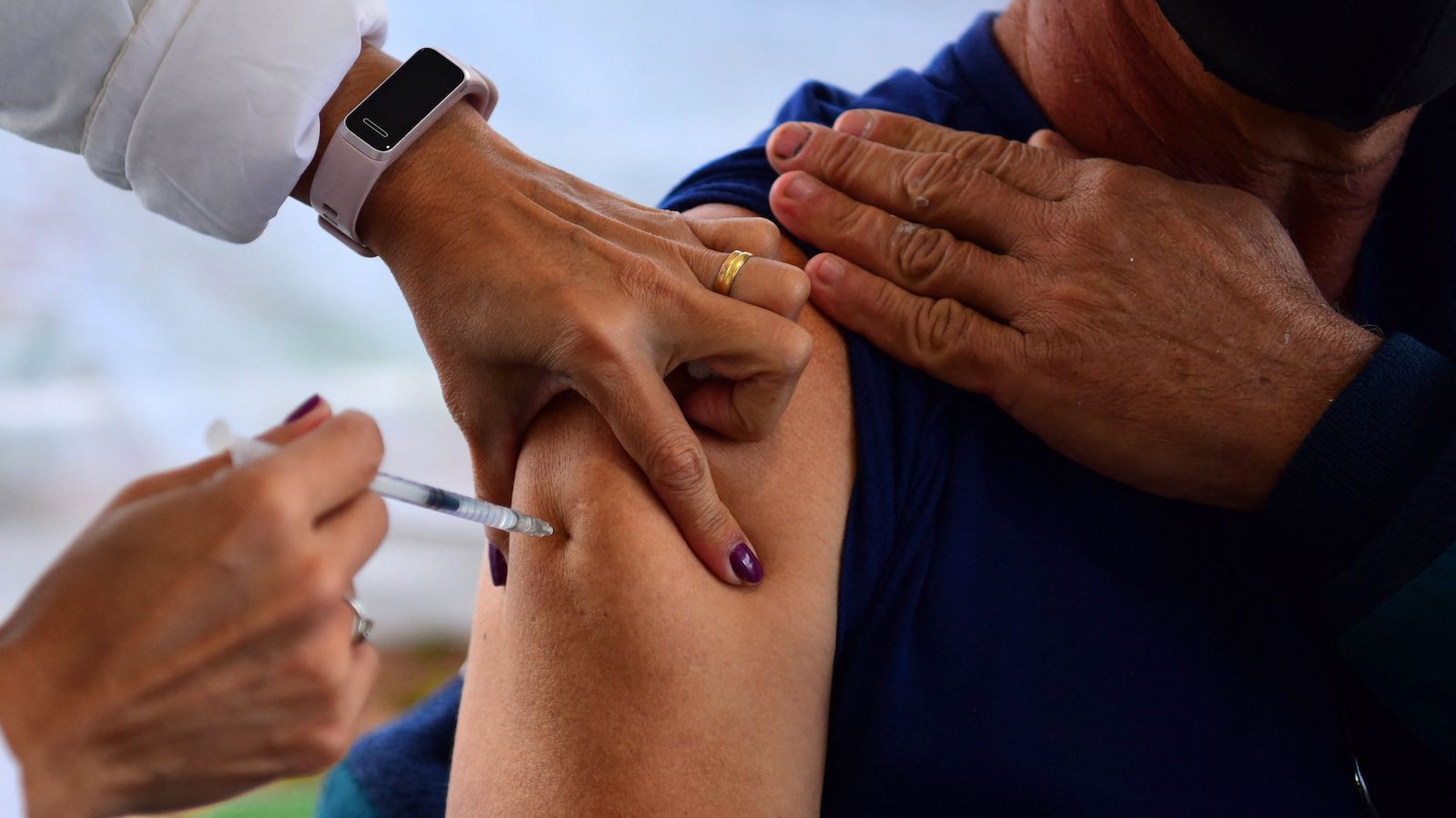Certain categories of employees in some EU countries will be required to be vaccinated against coronavirus. How do the different countries in Europe relate to the prospect of compulsory vaccination and is there a valid legal basis for such a requirement, Deutsche Welle reports, quoted by BNR.
French President Emmanuel Macron made a televised address to the nation on July 12th, which drew more viewers than the final of the European Football Championship. In it, he added an additional impetus to the country’s vaccination campaign. The measures he proposes affect health workers: if hospital and nursing staff are not vaccinated by September, they risk losing their jobs. The head of state also listed the introduction of restrictions for the unvaccinated.
French authorities have responded to the spread of the more contagious Delta strain by calling for compulsory vaccination. So far, about 39% of the country’s population is completely unvaccinated in France.
Following Macron’s statement, almost 1 million French people have signed up for vaccination. According to the Doctolib website, these are mostly young people under the age of 35.
On July 14, 19,000 people across the country took to the streets to protest measures announced by President Emmanuel Macron requiring health workers to be vaccinated and to introduce a vaccine health card for most public places. Police in Paris used tear gas to disperse protesters.
Germany: There will be no compulsory vaccination
Shortly after the introduction of compulsory vaccination in other countries was announced, the German authorities made it clear that they were in the opposite position and did not intend to force their compatriots to be vaccinated against their will. Chancellor Angela Merkel announced the decision on July 14 in an unfamiliar firm tone: “We do not intend to follow the path proposed by France. We have already stated that there will be no compulsory vaccination,” she said.
Merkel’s statement is unlikely to provoke a serious public response – for all the authorities’ desire to carry out universal compulsory vaccination in Germany, this seems unrealistic. The right to physical integrity of citizens is guaranteed by the German constitution. Of course, there are exceptions, when entering kindergarten or school, children must be vaccinated against smallpox. Such a vaccine is also required of employees in public and medical institutions, including educators and teachers. Asylum seekers and refugees are also obliged to get this vaccine no later than one month after being placed in a dormitory.
United Kingdom: Quarantine restrictions have been completely lifted since 19 July
The participation of the British national team in the European Football Championship caused admiration among thousands of football fans. And the crowd of spectators at Wembley Stadium without protective masks and without observing even a minimum distance caused criticism around the world.
Prime Minister Boris Johnson called on his compatriots to be careful. A few weeks earlier, the government announced mandatory vaccinations for employees in nursing homes. This requirement applies to hairdressers and other service workers, as well as to public sector volunteers. At the same time, the British Prime Minister, under the pressure of public opinion, announced one by one easing of restrictions. According to the plans from July 19, they will be completely canceled.
Greece: The number of infected is increasing
The Greek government is trying to take control of the pandemic in the country with firm statements and decisions.
“We do not intend to close the whole country again because of the attitude of some people towards vaccination,” Prime Minister Kyriakos Mitsotakis said earlier this week. Soon the residents of the country will have the right to visit the indoor premises in restaurants and cultural institutions only in the presence of a vaccination document.
Healthcare workers and nursing home staff are also required to be vaccinated, otherwise they will be fired.
According to experts, one of the main reasons for the increased number of infected is the resumed club life in the country and the night parties of young people. Given the volatile state of the Greek healthcare system, Greek authorities are expected to sound the alarm.
In Athens, about 5,000 people who oppose forced vaccination went out on Wednesday to protest the government’s announced upcoming mandatory vaccination for a certain category of employees. They put up posters reading “Freedom!”, “No extortion!”, “No terrorism!”, Icons, crosses, waving Greek flags and chanting anti-vaccination slogans.
Czech Republic: Mandatory vaccination is a matter of time
In the Czech Republic, all children must be vaccinated against 9 infectious diseases, including diphtheria, tetanus, pertussis, hepatitis B, measles, rubella and mumps. Without them, children cannot be admitted to any kindergarten or school, and the parents of unvaccinated children are fined.
There is no public debate on this issue in the country. Perhaps this is also due to the fact that in the spring the hard line of the Czech government was supported by the European Court of Human Rights (ECtHR). The court ruling states that Czech health policy “in every sense” is in the best interests of children.
Given the position of the Czech authorities, it is quite possible that the coronavirus vaccine will also become part of the compulsory vaccination program. According to the Robert Koch Institute, the number of Czechs fully vaccinated against COVID-19 is only 36%, which is relatively low compared to other EU countries.
–


